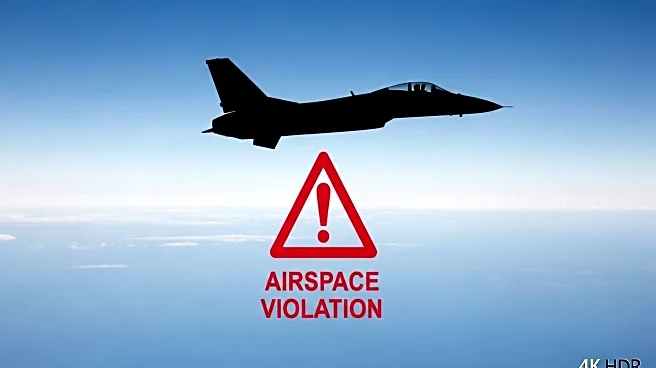What's Happening?
NATO members have been advised not to shoot down Russian fighter jets that breach alliance airspace, according to Jean-Paul Paloméros, a former head of one of NATO's strategic commands. This advice comes after Estonia reported that three Russian fighter jets violated its airspace for 12 minutes, marking the fourth such incident this year. The situation is part of a broader pattern of airspace violations and drone incursions in Europe, with countries like Denmark and Poland also experiencing similar incidents. U.S. President Donald Trump has indicated support for NATO countries taking defensive actions, including shooting down Russian aircraft if necessary. However, Paloméros cautioned against such measures, suggesting that Russia might be provoking NATO to overreact.
Why It's Important?
The incidents highlight the ongoing tensions between NATO and Russia, particularly in the Baltic region. The advice against shooting down Russian jets is significant as it underscores the delicate balance NATO must maintain to avoid escalating conflicts. The situation affects NATO's strategic planning and readiness, as well as its diplomatic relations with Russia. The potential for miscalculation or unintended escalation could have serious implications for regional security and international relations. NATO's response to these provocations will be closely watched by member states and could influence future defense policies and military engagements.
What's Next?
Estonia has requested Article 4 consultations within NATO, which allows member countries to discuss threats to their territorial integrity or security. This could lead to increased diplomatic efforts to address the airspace violations and prevent further incidents. NATO may also consider enhancing its air defense capabilities and coordination among member states to better respond to such provocations. The situation may prompt discussions on updating NATO's rules of engagement and strategic posture in the region.









